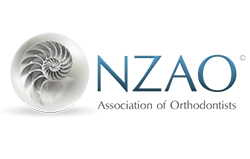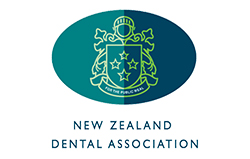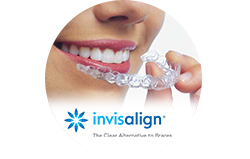Ans: Just as there are specialists in medicine (such as cardiologists, gastroenterologists, neurologists, etc.), there are specialists in dentistry. Orthodontists are dental specialists who dedicate their professional lives to correcting misaligned teeth and jaws.
Orthodontists are qualified dentists, who after graduating from dental school, go on to additional full-time university-based education in an accredited orthodontic residency program supervised by orthodontists. Our training lasted for three academic years. By learning about tooth movement (orthodontics) and guidance of facial development (dentofacial orthopedics), orthodontists are the uniquely trained experts in dentistry to straighten teeth and align jaws.
Ans: The Dental Council of New Zealand maintains a current list of orthodontic specialists. You can check who has a specialist qualification here. www.dcnz.org.nz
If you do not find the answer to your query here, please use our contact form to contact us directly.
Ans: If you are concerned about the appearance and function of your teeth and jaws orthodontic treatment may be for you. A great time to get an orthodontic opinion for your child is when the upper front baby teeth have fallen out and the adult replacement teeth have come through.
However, most orthodontic treatment is undertaken once all of the permanent teeth are through and the person is growing rapidly. This tends to be during the intermediate and early secondary school years. But no one is too old for treatment.
Ans: While many patients are referred to our practice by their dentist or school dental therapists, you may make an appointment without a referral. We get many direct referrals from family and friends of out happy patients.
Ans: At the first visit an initial consultation fee will apply to cover the cost of the first visit only. You will be advised of the cost when arranging your appointment. The cost of orthodontic treatment depends on the type of treatment provided, the severity of the problem and the proposed treatment time. You will be provided with a written treatment plan and quote for treatment prior to the commencing treatment. We provide a range of payment options including upfront payment discount, family discount and instalment plans to spread payments.
Ans: Depending on the severity of the problem, growth during treatment and how well you follow instructions, treatment times can vary greatly. The average treatment time for an adolescent is 24 months. Adult treatments generally take a little longer.
Ans: Absolutely Not! – not if we can avoid it.
Ans: The decision as to whether teeth need to be removed, or not, comes after a full consultation with the patient and a thorough assessment of the pretreatment records (models, photos and xrays). Sometimes teeth do need to be removed to treat cases with excessive crowding, very prominent teeth or teeth with very poor prognosis. We do not like removing teeth and if there is a possibility of a healthy attractive smile without the removal of teeth we will begin without removing them and reassess treatment response before making a final decision.
Ans: I’m sorry – there are some rules about care! It is very important that you keep your teeth very clean. The glue we use to put the braces on with is very weak (so we can take them off easily at the end of your treatment) so you will have to cut up any hard foods you choose to eat. No energy or sports drinks and only soft drinks as a treat! They are very acidic and sugary and will make holes in your teeth in no time (whether you have braces on or not). We’ll provide you with lots of information at the time your braces are put on. Seeing us regularly does NOT mean you don’t need to see your dentist regularly during treatment. Extra dental hygiene visits may also be recommended.
Ans: There are a wide range of reactions to the fitting of braces. Several hours after the braces have been placed you will probably feel some discomfort. This bruised feeling usually lasts a few days and you may feel like a softer diet and some pain relief. This will ease after the first week.
Depending on what is done you may experience some discomfort after your orthodontic checkups.
Ans: We like to see our patients approximately every six to eight weeks during your active treatment.
Ans: Fixed appliances are more commonly known as “braces”. They are made of stainless steel or clear (porcelain). They are glued onto the teeth and once wires are threaded into tiny slots in them, they act as handle, allowing the teeth to be moved into their ideal positions.
Ans: Also known as “plates”, removable appliances are used to either correct the positions of small numbers of teeth that require simple movements or as a plate to retain the teeth at the end of treatment.
Ans: After the braces have been removed it is essential that your teeth are held while the teeth “set” in their new positions and in the longer term to avoid small unwanted changes. This can be achieved with the use of an upper removable plate and a fixed wire bonded behind the lower front teeth. You will wear the plate full time to begin with and then gradually reduce the amount of wear. Because we now understand that, like the rest of your body, with wear and age some tooth movement is expected, retainers need to be worn from time to time to avoid any unwanted changes. We will monitor you retention for 2 years after the braces have been removed and will advise you about any problems you may have with eruption of the wisdom teeth.
Ans: Your treatment can be transferred to another orthodontist, preferably one who uses the same appliances. You will be provided with your records and a transfer letter detailing where you are in your treatment. Your treatment fee would be reassessed using a national formula provided by NZAO – adjusting the fee for the amount of treatment undergone and that’s still remaining.





